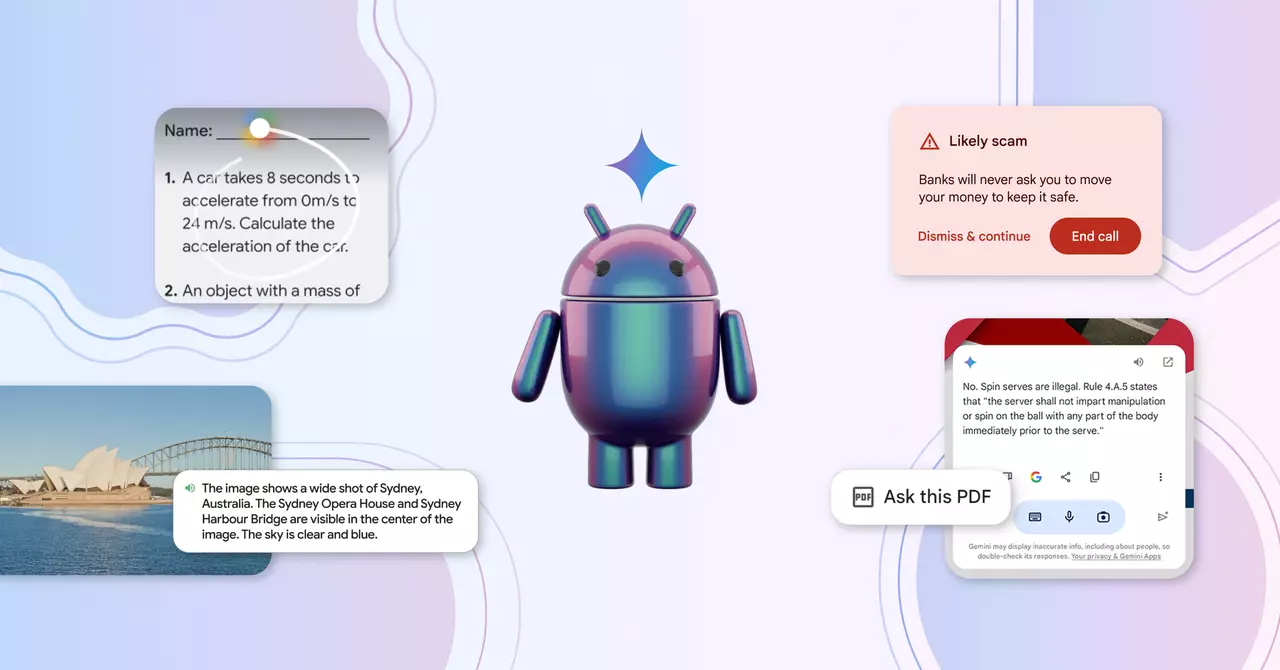Nearly a decade ago, Google introduced Now on Tap in Android Marshmallow, a feature that allowed users to tap and hold the home button to access contextual information related to what was on the screen. This feature was revolutionary at the time, providing users with quick access to relevant information without having to leave the app they were in. However, over time, Now on Tap evolved into Google Assistant, a more advanced but slightly different version of its predecessor. Today, at Google’s I/O developer conference, new features in Android are reminiscent of the innovative nature of Now on Tap, leveraging advancements in large language models to provide users with contextual information that can enhance their phone usage experience.
The Ingenuity Behind Circle to Search
One of the notable features introduced by Google is Circle to Search, a new way of approaching Search on mobile devices. Similar to the interactive experience offered by Now on Tap, Circle to Search allows users to circle items on the screen that they want to search for, making the process more engaging than traditional text-based searches. According to Dave Burke, vice president of engineering at Android, Circle to Search is a “visceral, fun, and modern way to search,” appealing to a younger demographic due to its interactive nature. Positive feedback from consumers has led to further enhancements in Circle to Search, particularly in catering to students’ needs. Now, users can circle physics and math problems, and Google will provide step-by-step instructions on how to solve them within the syllabus app, demonstrating Google’s commitment to education.
The Rise of Gemini as the New AI Assistant
Gemini, Google’s AI assistant, is positioned as the successor to Google Assistant, offering users an opt-in experience that promises advanced functionalities and capabilities. As Gemini continues to evolve and become more sophisticated, users are given the option to replace Google Assistant with Gemini on their Android devices. However, the coexistence of both assistants raises questions about the future of Google Assistant and whether it is heading towards obsolescence. Addressing this concern, Sameer Samat, president of the Android ecosystem at Google, emphasizes that Gemini is an evolving assistant that provides users with a choice to opt into a new AI-powered experience. While there are no announcements regarding the fate of Google Assistant, the emergence of Gemini signals a shift towards a more advanced assistant technology.
Overall, the latest developments in Android showcase a transformative shift in the capabilities of mobile devices, empowering users with innovative features that leverage AI and machine learning. From the evolution of Now on Tap to the inception of Circle to Search and the rise of Gemini as a new AI assistant, Google is reimagining the possibilities of Android and setting the stage for a future where contextual information and personalized experiences drive user interactions. As technology continues to advance, it will be interesting to see how these new features shape the landscape of mobile devices and redefine the ways in which users interact with their smartphones.


Leave a Reply